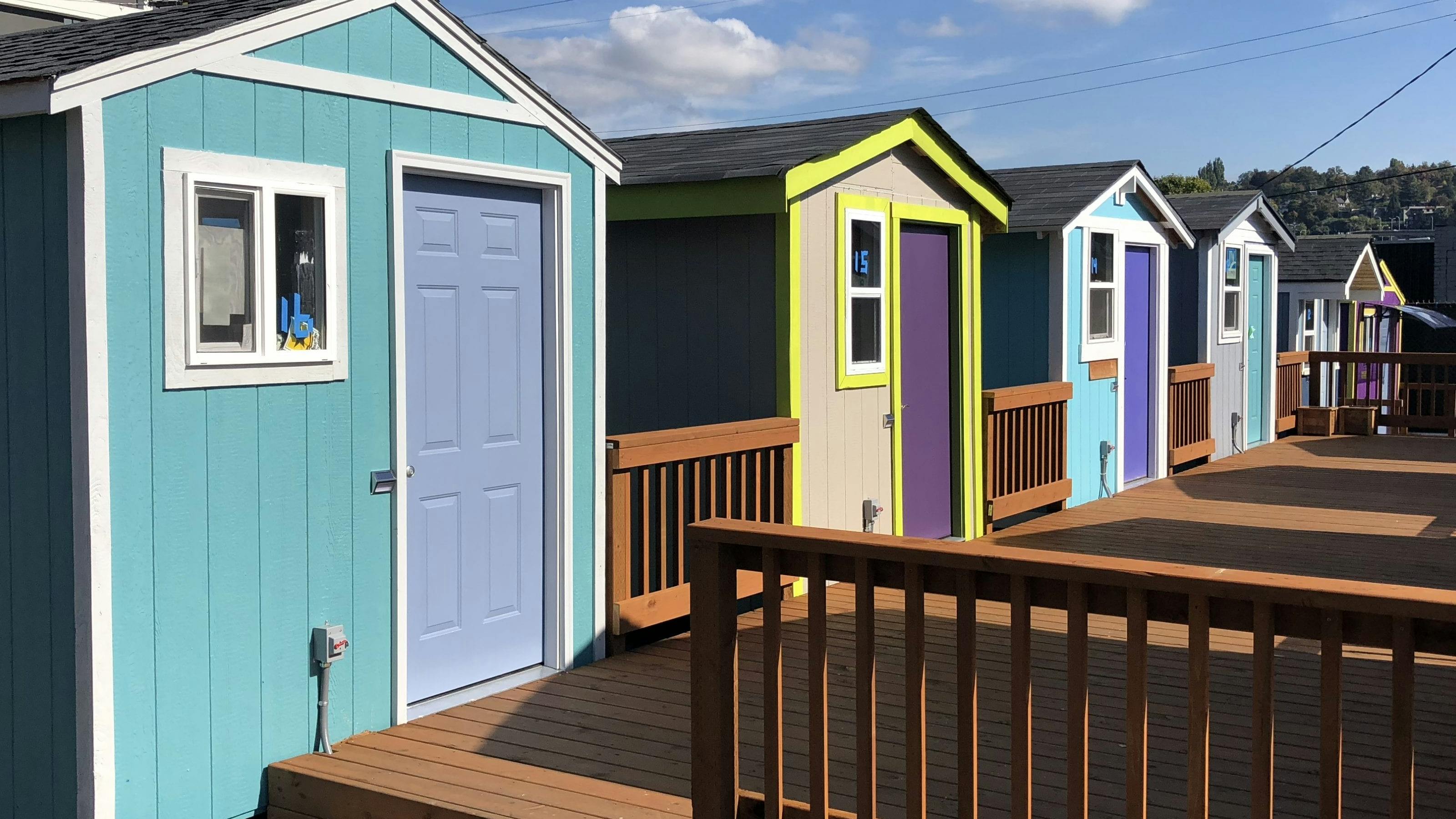Interim Housing (Alternative Housing Options)
Consultation has concluded
City Council Adopts Interim Housing
During the August 21, 2024, meeting, City Council unanimously adopted Ordinance No. 5229, which created the zoning regulations for interim housing, including limiting the number of shelters to 30, allowing operation for up to four years at individual sites, and restricting them to non-residential zones. Council members highlighted the importance of public input and acknowledged that interim housing is a necessary, though partial, solution to the city's homelessness challenges.
To view the City Council agenda, watch the meeting, or to review the documents - Click Here
What is interim housing?
Interim Housing can be a broad term used by many groups, like housing organizations and some government agencies, to describe different kinds of temporary shelters. These can include places like interim parking and interim shelters. They're not meant to be permanent buildings and are meant to temporarily provide a safe shelter until more permanent housing solutions can be found. Each housing organization or agency defines it a little differently, for the proposed definition. The City of Grand Junction's code defines interim housing as temporary residential occupancy of multiple relocatable temporary structures for people experiencing houselessness.
Is Interim Housing New?
Interim housing emerged as a temporary solution during the COVID-19 crisis when many congregate shelters were forced to close. This approach serves as a crucial "interim" option, providing shelter while longer-term solutions, such as permanent housing, are developed. Though not intended as a permanent fix, interim housing offers a valuable alternative to traditional shelters, providing more privacy, support, and safety during this transitional period as individuals move toward stable housing. The Housing Continuum below shows the more "traditional" housing types and is reflective of the types of newer housing solutions listed in Interim Housing.

What about Interim Parking, Sanctioned Camping, and the Use of Tents?
The City of Grand Junction has decided to move away from interim parking and sanctioned camping as part of its interim housing strategy. These options pose significant challenges in meeting life safety requirements and, after extensive research and consultations with organizations in various cities, it has become clear that many are shifting toward more structured shelter solutions. Interim parking and sanctioned camping, particularly those involving tents, also face difficulties in securing funding, as they are not typically recognized as housing units. Additionally, the funds available for "outreach" in these contexts are significantly limited, making these models less viable in the long term.




